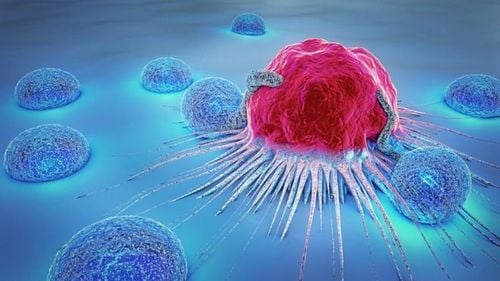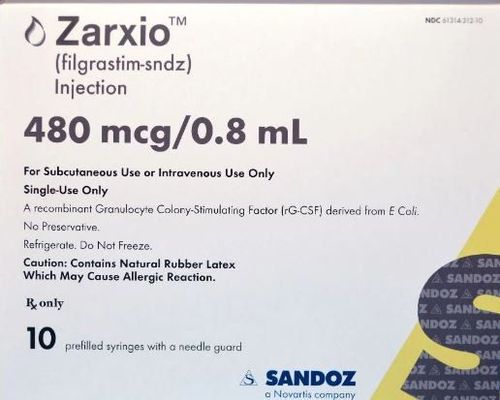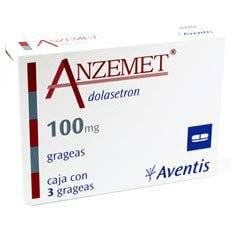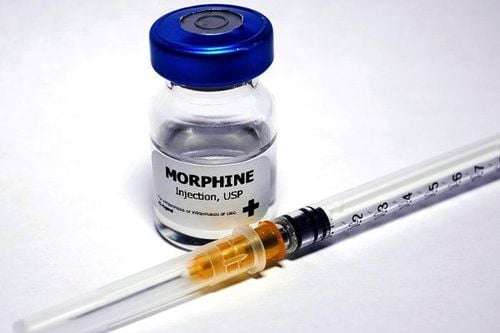This is an automatically translated article.
Leukopenia during cancer treatment is quite common, especially in chemotherapy patients. At the same time, leukopenia can also be caused by malignancies when infiltrating the bone marrow or by some malignancies that proliferate the lymphatic system, inhibiting the leukocyte flow. Furthermore, radiation therapy, if given to multiple sites of active bone marrow proliferation, can also cause leukopenia. Regardless of the cause, the risk of infection in people with leukopenia during cancer treatment is very high, which is a sign of severe prognosis.
1. What is leukopenia during cancer treatment?
Leukopenia is when there is a decrease in the number of white blood cells in the blood. These cells are the body's main defense against infection. Leukopenia is a common complication after chemotherapy, increasing the risk of infection during cancer treatment. In particular, stress, poor nutrition, and insufficient sleep can also weaken a person's immune system and make infection more likely.
In cancer chemotherapy, drugs work by killing fast-growing cells in the body (both good and bad), resulting in leukopenia. The duration of leukopenia usually depends on the type or dose of chemotherapy.
Usually, white blood cell counts start to drop about 1 week after chemotherapy starts. The level of leukopenia will reach its lowest point about 7-14 days after treatment - this is when the risk of infection during cancer treatment is very high. Then the white blood cell count will start to rise again. This is because the bone marrow restarts normal white blood cell production, however, it can take 3 to 4 weeks for normal white blood cell levels to return.
When the white blood cell level returns to normal, the patient must again be ready for the next round of chemotherapy. Therefore, during cancer treatment, patients will often have blood tests to check for leukopenia, sometimes medication to prevent infection or increase white blood cells quickly. .
In addition, when radiation therapy is given to certain parts of the body or bones in the pelvis, legs, chest, and abdomen, it will also inhibit the production of white blood cells and cause a decrease in the number. In particular, people with cancer can also develop leukopenia if they have cancers that directly affect the bone marrow, such as leukemia, lymphoma, and multiple myeloma, or when the melanoma has progressed. Spread.
Some people are more likely to have leukopenia during cancer treatment than others if:
Are 70 years of age or older; Have a weakened immune system due to other causes, such as HIV infection or an organ transplant.

Mức độ giảm bạch cầu sẽ đạt ngưỡng thấp nhất vào khoảng 7-14 ngày sau khi điều trị
2. Signs of infection in people with leukopenia during cancer treatment
For cancer patients with leukopenia, the infection can quickly become serious. Therefore, when starting cancer treatments with chemotherapy and radiation, patients need to be explained the risk of infection due to leukopenia and instructed to recognize the signs of infection to quickly seek treatment. require medical intervention.
Some signs of infection in people with leukopenia during cancer treatment include:
Fever 38°C higher than 1 hour or 1 fever 39°C; Chills and sweating; Change in cough symptoms or new onset of cough; Sore throat; Shortness of breath, feeling short of breath; Stuffy nose; stiff neck; Pain and urinary incontinence; Increased urination; Unusual or irritated vaginal discharge; Redness, pain, or swelling in any area, including surgical wounds and needle and drain sites; Diarrhea ; Vomiting; Abdominal or rectal pain; Skin changes; Change in mental state.
3. What to do with leukopenia during cancer treatment?
The1 important part of caring for cancer patients is reducing the side effects of treatment. This is called palliative or supportive care, especially for leukopenia.
During chemotherapy, sometimes white blood cell levels don't return to normal quickly enough or progressive leukopenia is suspected, increasing the risk of infection, then certain precautions can be taken by your doctor , including:
Delaying the next round or reducing the dose of chemotherapy; Long-term antibiotic therapy is recommended until leukopenia recovers to prevent infection; Taking white blood cell growth factors, which help the body make more white blood cells; Actively take precautions to reduce the risk of infection when leukopenia is occurring.

Giảm bạch cầu là biến chứng thường gặp sau khi hóa trị, làm tăng nguy cơ nhiễm trùng khi điều trị ung thư
4. How to prevent infection caused by leukopenia during cancer treatment?
In addition to receiving medical intervention from a doctor, people with cancer also need to adhere to the following suggestions that can help prevent infection:
Wash hands frequently; Try to avoid crowded places and contact with people who are sick; Do not share food, drinking cups, personal belongings or other personal items, such as toothbrushes, face towels; Shower daily and use unscented lotion to help prevent skin from drying out and cracking; Eat foods that are cooked to kill off germs; Wash fruits and vegetables carefully when eating them raw; Protect skin from direct contact with pets and their waste by wearing protective clothing and gloves. Wash your hands thoroughly afterwards; Use gloves when gardening; Clean teeth and gums with a soft toothbrush and use mouthwash to prevent mouth sores if prescribed by your doctor; Try and keep all surfaces in the home clean at all times; Get a regular seasonal flu shot. In conclusion, leukopenia during cancer treatment is a very scary side effect. This condition can increase the risk of serious infections, leading to sepsis and even death. Therefore, cancer patients should be informed about the risk of developing leukopenia immediately before starting any therapy. At the same time, how to proactively prevent as well as signs of infection during cancer treatment should be well understood by patients, for early detection, timely intervention, high efficiency and improved prognosis. amount of malignancy.
Currently, early cancer screening is considered the perfect measure in the timely detection and treatment of all types of cancer. Reduce the cost of treatment and especially reduce the mortality rate in patients. Vinmec International General Hospital always deploys and introduces to customers the Early Cancer Screening Package at Vinmec - Peace of mind to live well to help with gene testing, imaging, testing of biomarkers to detect tumors you early.
Choosing the Early Cancer Screening Package at Vinmec - Peace of mind at Vinmec, customers will get:
Only one gene test can assess the risk of 16 common cancers in both men and women ( Lung cancer, colorectal cancer, breast cancer, pancreatic cancer, cervical cancer, stomach cancer, prostate cancer, ....) Early detection of early signs of cancer cancer through imaging, endoscopy, and ultrasound. The operation is simple, careful and accurate. A team of well-trained specialists, especially in oncology, are capable of handling cancer cases. With a system of facilities, advanced and modern medical equipment and a team of doctors with deep expertise and experience, it will help the examination and treatment process of patients at Vinmec become faster with High efficiency, save cost and time.
Please dial HOTLINE for more information or register for an appointment HERE. Download MyVinmec app to make appointments faster and to manage your bookings easily.













